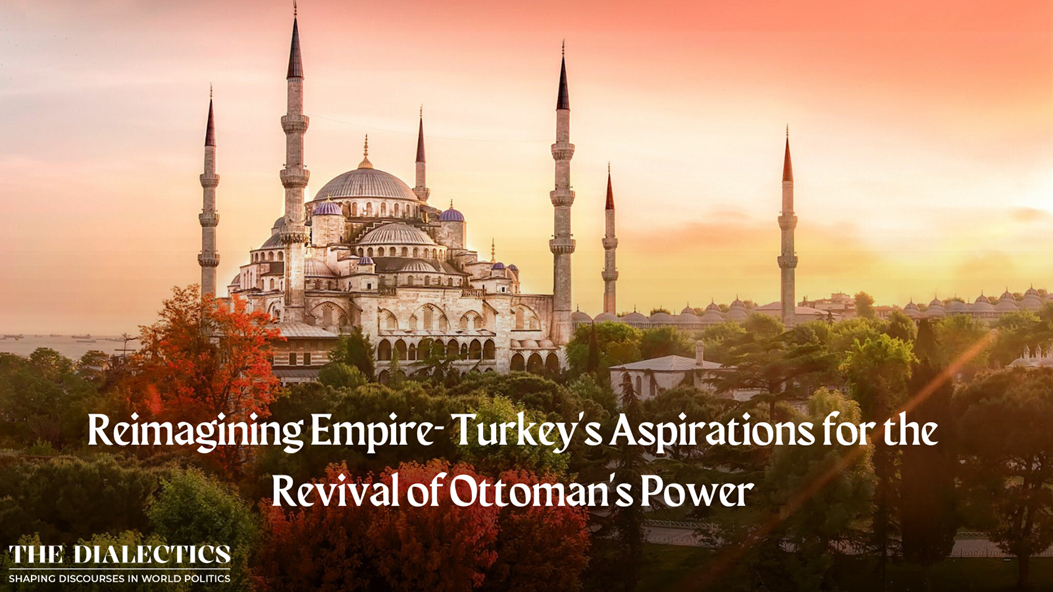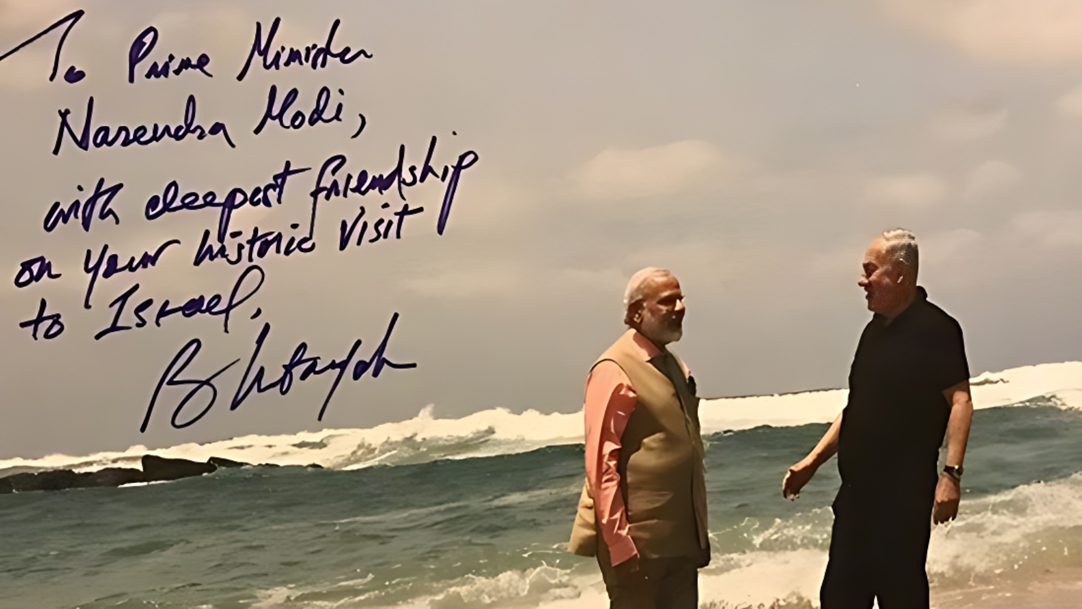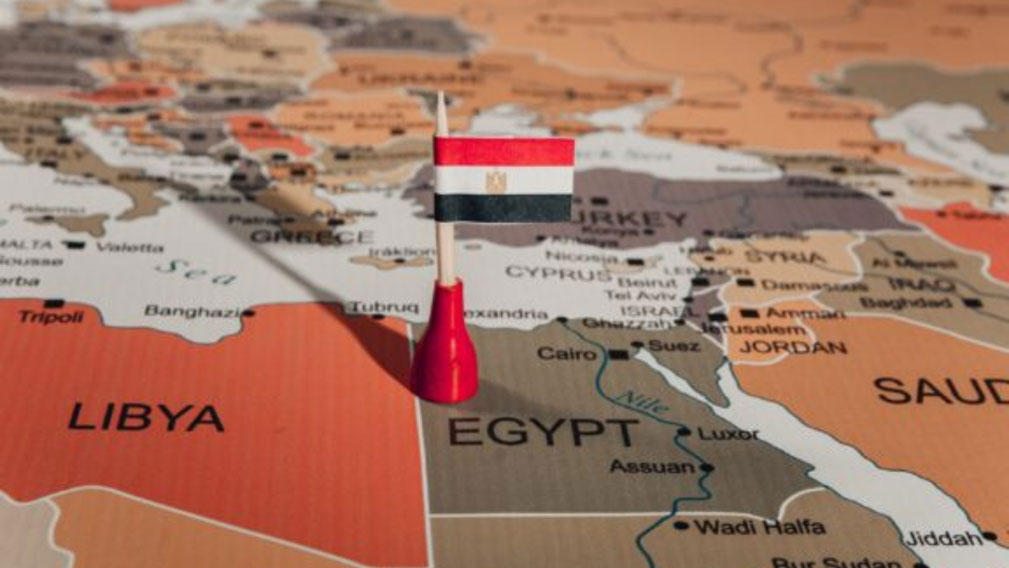Turkey witnessed an ideological transformation from Kemalism to neo-Ottomanism in the post-Cold War era. The movement emerged as Turkey’s new business class leveraged the nation’s economic growth, accumulated capital, and regional military strength to assert a more assertive role in international affairs. The idea of Neo-Ottomanism is a blend of apparent conflicting values. This revived Islamism within Turkey’s secular political framework, adhering to the Kemalist principle of “zero problems” with neighbouring states yet pursuing policies that often led to political and military expansion. Neo-Ottomanism is based on the idea that the country will depart from its secular Kemalist political and social culture to its legacy of the Ottoman empire. It also aimed to reassert influence over regions once under Ottoman rule. This article will explain how the new idea seeks to re-bring Turkey’s regional and global standing by leveraging historical, cultural, and strategic assets that were once associated with the Ottoman Empire.
Historical Foundations and Modern Resurgence of Neo-Ottomanism
Neo-Ottomanism is a recent Turkish political, social ideology and foreign policy approach that seeks to revive aspects of the Ottoman Empire’s legacy. It also emphasizes regional influence and leadership within the Muslim world. This ideology has been particularly associated with the Justice and Development Party (Adalet ve Kalkınma Partisi, AKP), led by Recep Tayyip Erdogan. He has been in power since 2002. Neo-Ottomanism aims to unify diverse ethnic and religious communities under the umbrella of Islamism, pan-Islamism, and pan-Turkism. It reflects a desire to elevate Turkey’s international clout by transforming the nation from a small power to a regional and even global power.
The Tanzimat reforms of the 19th century, particularly the Gulhane Hatt-i-Sherif (Noble Edict of the Rose Chamber) issued in 1839, illustrate efforts to modernize the empire while promoting equality among people, regardless of religion or ethnicity. This edict called for establishing new institutions guaranteeing the security of life, property, and honour to all people. It envisaged the development of a modern taxation system and fairer military conscription and training methods. Despite these reforms, challenges in its implementation persisted, leading to varying degrees of success. The empire’s decline after World War I led to the emergence of Western influence under Kamal Ataturk. However, the new emergence of pan-Islamism and pan-Turkism as responses to Western influence and internal strife can be seen these days.
Evolution of Turkey’s Neo-Ottoman Empire: From Secularism to Islamic Influence
The conclusion of World War I and the subsequent disintegration of the Ottoman Empire set the stage for the birth of Turkey as a nation. After the defeat of the Ottoman Empire, the core ideology of Ottomanism faded, which paved the way for Mustafa Kemal Ataturk’s nationalist vision. This ideology resonated with Turkish military officers and tilted towards Western ideologies such as democracy, equality and capitalism. During the war period and aftermath, when the Ottoman dynasty was falling, the idea of nationalism increased, which cultivated a collective Turkish identity. The new nation was born on the debris of the Ottoman Empire, and Kamal Ataturk built the nation on Kemalist principles based on the rule of law and liberal ideas such as freedom of expression, voting rights and secularism. By the end of World War II, Turkey had transformed into a cohesive nation-state and joined NATO, a Western military bloc formed to counter USSR influence. This integrated Turkey into the Western bloc.
In the 1980s, a major shift occurred as neo-Ottomanism emerged as an idea that advocated for a more assertive Turkish presence in various regions. This was to revive the previous glory and power that was once under Ottoman rule. The idea was led and spread by figures like Turgut Özal and, later, Ahmet Davutoglu. Political Islam witnessed a strong resurgence in the early 1990s, which became the foundation of Neo-Ottomanism.
This ideology sought to merge Turkey’s Ottoman heritage with its modern aspirations. The end of the Cold War and the dissolution of the Soviet Union provided a suitable ground for this resurgence. Neo-Ottomanism is intertwined with Turkey’s foreign policy in order to exert influence regionally and bring strategic autonomy as a foreign policy tool. The ideology also reflected a broader societal re-Islamization, which challenged the secular foundations established by Ataturk at the inception of the country.
Erdogan’s Neo-Ottoman Vision: Reshaping Turkey’s Identity and Influence
Over the year, under the leadership of incumbent President Recep Tayyip Erdogan, Turkey has changed its secular principles of Kemalism to neo-Ottomanism, based on Islam. This shift seeks to intertwine the secular foundations laid by Mustafa Kemal Ataturk with the rich imperial legacy of the Ottoman Empire, aiming to reassert Turkey’s influence over regions once under Ottoman rule. Erdogan’s vision goes beyond political ambitions, including economic policies based on ‘economic nationalism’ and the promotion of a social renaissance that combines religion with national identity. This syncretism of secularism and Islamism has generated controversy over its potential impact on Turkey’s European integration and its bilateral relations with neighbouring nations. Central to this neo-Ottoman approach is a foreign policy that emphasizes Turkey’s national interests, occasionally diverging from traditional Western alignments. Erdogan’s government has been actively involved in regional disputes, exercised influence in the Balkans, Middle East, and North Africa, and acted as a mediator, indicating a need to project power similar to the Ottoman Empire. Ideological roots of neo-Ottomanism based on pan-Islamism also confuse the international relations of Turkey, particularly with those countries that take these aspirations with skepticism.
Domestically, Erdogan’s policies have aimed to reconcile Turkey’s secular principles with its Islamic heritage. This has meant encouraging religious education, supporting cultural Islamic expression, and redefining national identity to give a greater role for Islam. The practice is defended on the grounds of restoring cultural authenticity and enabling Muslim communities. However, critics fear that this will erase secular freedoms and marginalize minority groups.
Economically, the neo-Ottoman vision includes ‘economic nationalism. This seeks to increase reliance on domestic industries and decrease on foreign powers. In doing so, involving policies such as infrastructure projects, supporting local businesses, and making Turkey a centre of regional trade networks. These policies have brought economic growth but have also created tensions with global powers such as the US and Russia.
Neo-Ottoman Ambitions: Confronting Economic and Geopolitical Challenges
Leveraging its economic growth, Turkey has enhanced regional military dominance to increase international standing.Though Turkey remains aligned with the US and NATO, it has concurrently pursued its own strategic autonomy. In a 2010 address, then-Foreign Minister Ahmet Davutoglu articulated Turkey’s ambition to evolve into a global power and cited its strategic geography and diplomatic heritage.
This is a manifestation of Turkey’s desire to exercise more independence in an emerging multipolar international order, particularly with such rising countries like Japan, China, India, Russia, and Germany becoming independent geopolitical players.
But Turkey’s neo-Ottoman ambitions are in trouble. The ideology’s expansionist tendencies, which recall early 20th-century pan-Turkism, are troubling to neighbouring nations, especially concerning possible interventions in areas with Muslim minorities, as in the past with Cyprus. Internally, the fusion of religion and nationalism at the heart of neo-Ottomanism might cause rifts within central institutions, like the military, which could weaken internal cohesion and willingness to collaborate with NATO allies. Moreover, this ideological position can hinder the integration of Turkey into the European Union due to geographical, cultural, and political discrepancies. Although Turkey is a largely Muslim country with a part of its land situated in Europe, its authoritarian inclination and domestic clashes are opposed to EU democratic practices. Moreover, the Ottoman heritage of the Balkans can cause resistance to welcoming Turkey’s regional aspirations. Therefore, Turkey’s neo-Ottoman policy may isolate it from European integration processes, decreasing its power within the EU system. Turkey’s neo-Ottomanism is an effort to restore its historical heritage and reassert influence throughout former Ottoman realms. It incorporates the blending of secular administration with Islamic mores, ambitious foreign policies, and economic nationalism. Internationally, this strategy has bolstered President Recep Tayyip Erdogan’s political base at home through appeals to religious feelings and conjoining with powerful religious networks. Globally, Turkey’s assertive role in regional conflicts, like backing Syrian rebels, has increased its geopolitical influence, spreading its reach from the Middle East to the Horn of Africa, the Caucasus, and Central Asia. Yet, these ambitions are threatenedby possible splits in the Turkish military, neighbouring countries’ fears of expansionist tendencies, and hindrances to integration into the European Union. Balancing these ambitions against regional views and international partnerships is to be a key part of Turkey’s future geopolitical strategy.




